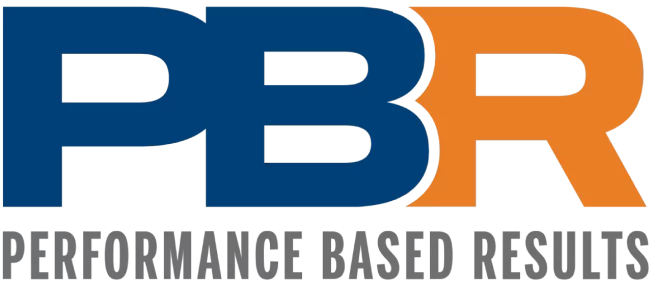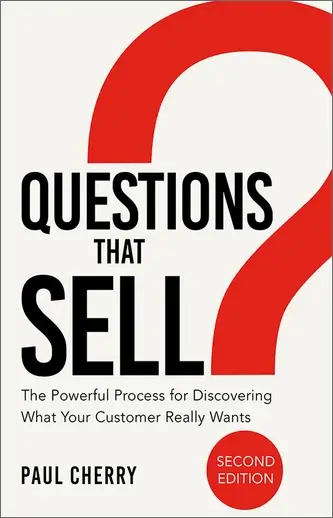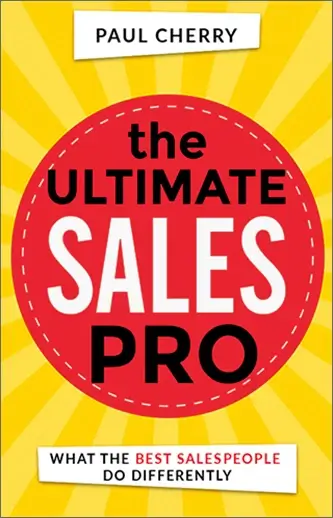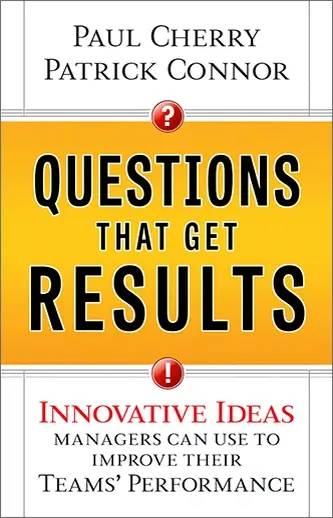In today’s competitive business environment, mastering the art of sales questioning can significantly impact your revenue and overall success. The key to unlocking this potential lies in “Impact Sales Using Impact Questions.”
By incorporating high-impact questions into your sales strategy, you elevate the quality of your engagements and align more closely with your customers’ true needs and desires.
High-impact questions serve as powerful tools to uncover hidden opportunities, address buyer hesitations, and drive meaningful conversations.
Consequently, this practice not only bolsters your sales performance but also sets you apart from competitors. In this guide, we will explore various types of impact questions that will transform your sales approach and lead you to greater achievements.
Impact questions
Impact questions hold the key to transforming your sales strategy and propelling your team toward unparalleled success.
These high-impact questions are designed to delve deeply into your prospects’ needs, uncovering critical insights that surface the true pain points and motivations driving their decisions.
By mastering the art of impact questions, you can build stronger connections, foster trust, and, ultimately, close more deals.
Understanding Impact Questions
Understanding impact questions is vital for driving successful sales conversations. Impact questions, often referred to as high impact questions, are strategic queries designed to uncover deeper insights and motivations of potential clients.
Unlike basic questioning, these inquiries provoke thoughtful reflection, revealing crucial pain points and desires that standard questions might miss.
For instance, when discussing sales challenges, a well-crafted impact question might be, “How would not achieving your annual sales target affect your department’s growth strategy?” This approach allows sales professionals to foster meaningful connections, create a sense of urgency, and tailor their solutions effectively.
In conclusion, mastering impact questions can significantly enhance the depth and effectiveness of your sales dialogues, setting the stage for impactful and result-driven sales outcomes.
Situation Questions
Situation questions are foundational in the sales process, setting the stage for deeper conversations.
They aim to uncover the background and context of a prospect’s current situation. In other words, these questions help identify the existing conditions and operational landscape of a business.
For instance, you might ask, “Can you describe your current sales process?” or “What tools and systems are you using to manage your sales team?”
These queries are essential because they gather vital information without being intrusive. Consequently, situation questions facilitate a smooth transition into more detailed problem assessments.
As a result, understanding the context enables sales professionals to tailor their solutions effectively, demonstrating your expertise and commitment to resolving specific challenges.
Problem Questions
Problem questions are essential for identifying the key pain points your potential clients are experiencing. These questions dig deep into the issues that are hindering their sales performance, such as lost sales revenue or missed targets.
By asking targeted problem questions, you can uncover the specific challenges that your clients face, like ineffective selling techniques or unmotivated sales teams.
For example, some effective problem questions include, “What challenges are your sales teams currently facing?” or “Why do you think your current strategy is not delivering the expected results?”
Consequently, these questions not only highlight the areas needing improvement but also establish a foundation for offering tailored solutions that directly address those problems, increasing the likelihood of closing sales.
Implication Questions
Implication questions are designed to uncover the consequences of a customer’s problem. These inquiries are crucial because they bring to light the broader effects and the potential impact on the business if the issue remains unresolved.
For instance, if a sales team is not meeting targets, an implication question might be, “What could be the long-term impact on your revenue if this trend continues?”
By asking implication questions, you help clients visualize the real cost of inaction, making the need for a solution more urgent. This approach not only emphasizes the existing pain points but also showcases your understanding of their deeper, more significant concerns. High questions of impact. These can drive clients to prioritize finding effective solutions promptly.
Need-Payoff Questions
Need-Payoff Questions are instrumental in transforming a potential lead into a committed client. These questions are designed to help your prospects visualize the benefits of your solutions.
For instance, questions like “How would an increase in sales impact your quarterly targets?” or “What benefits would your team experience if they could close deals more efficiently?” are powerful because they make the prospect consider the tangible benefits of your services.
Moreover, these questions shift the focus from the problem to the solution, emphasizing how your service can meet their needs.
Consequently, Need-Payoff Questions not only generate interest but also create a sense of urgency to act, leading to a higher conversion rate and, ultimately, increased sales revenue.
Sample questions of impact.
Situation questions are the foundation of understanding a client’s current status before delving deeper. For instance, asking, “Can you describe your current sales process?” or “What sales strategies are you currently employing?” helps you gather essential data.
Above all, these questions set the stage for more impactful conversations. Therefore, it’s imperative to get a clear picture of the client’s existing scenario.
In short, situation questions help you identify the context, setting you up to dig deeper into the challenges the client faces. These questions should be efficient to avoid overloading the client with data requests, which can be counterproductive. Use these insights to transition smoothly to problem questions, thereby enhancing your consultative selling approach.
Implementing questions of impact On Your Sales Strategy
To truly revolutionize your sales strategy, implement questions of impact. Is paramount. These are questions designed to uncover deeper customer needs, motivations, and pain points. They go beyond surface-level queries, ensuring that you can provide tailored solutions that resonate.
By mastering high questions of impact., you can foster stronger client relationships, address critical issues effectively, and ultimately drive your sales to new heights. Let’s delve deeper into the various types of questions of impact..
Integrating questions of impact into Your Sales Approach
Integrating questions of impact into your sales approach is a game-changer for increasing sales performance.
By utilizing these advanced questioning techniques, you can uncover deeper insights into your client’s needs—for instance, questions of impact.
Help you identify pain points like lost sales revenue or ineffective selling performance. Therefore, asking targeted questions enables you to genuinely understand their challenges and offer solutions that address their specific concerns.
In other words, this method fosters a consultative selling environment, enhancing your ability to close complex, multiple-contact sales.
Consequently, your team will be more motivated and productive. Above all, questions of impact will give you a competitive edge, ensuring you consistently meet and exceed sales targets.
Customizing Impact Question Techniques
Customizing impact question techniques is essential for any sales professional looking to significantly boost results. But how do you tailor these questions to suit your specific industry and target audience?
Firstly, delve into your customer’s unique challenges. If your target audience is business owners and CEOs facing missed targets, your questions should focus on understanding their specific pain points, such as “How do missed targets affect your overall business strategy?”
Secondly, adapt your questions based on the sales cycle stage. During initial contacts, ask situational questions to gather broad context. As the relationship deepens, it moves toward problem and implication questions to unearth deeper issues.
Finally, always emphasize the end goal by using need-payoff questions to illustrate how your solution directly benefits them.
Evaluating Impact and Success
Evaluating impact and success is fundamental to understanding the effectiveness of your sales strategies.
Firstly, to measure the impact, it’s crucial to establish clear metrics such as sales growth, increased customer acquisition, and improved closing rates. By setting these quantifiable goals, you can objectively assess the improvements.
In addition, qualitative measures like team morale and customer satisfaction should be considered. For instance, a motivated sales team often delivers better performance, leading to higher profits.
Moreover, regular assessments and feedback loops allow for continuous improvement and adaptation. Consequently, this ensures your strategies remain effective in real-time scenarios.
In conclusion, thorough evaluation not only validates success but also identifies areas for further enhancement, giving you a competitive edge.
Enhancing Sales Effectiveness with questions of impact.
Questions of impact are a powerful tool in the world of B2B sales.
These high questions of impact not only help you understand your client’s needs on a deeper level but also demonstrate your expertise and commitment to solving their specific pain points.
By skillfully employing questions of impact., you can transform sales conversations into meaningful dialogues that drive results.
In the following sections, we will delve into the various types of questions of impact and how they can revolutionize your sales strategy.
Differentiating Your Offering
Differentiating your offering involves standing out in a crowded marketplace by emphasizing your unique capabilities.
To achieve this, focus on uncovering what truly sets your solution apart. For instance, your expertise in advanced questioning and listening skills can significantly enhance a client’s sales performance.
These unique capabilities allow you to unearth deeper client needs and tailor solutions that directly address key pain points such as lost sales revenue and ineffective selling performance.
Moreover, your acclaimed book, “Questions That Sell,” serves as a testament to your authority in the field, providing a reliable framework for your training programs.
These high questions of impact you teach not only resonate with clients but also drive actionable results, setting you apart from competitors who lack this specialized knowledge.
Overcoming Objections
Facing objections from potential clients is a standard part of the sales process. However, overcoming objections effectively can turn these challenges into opportunities. Firstly, it’s essential to listen and understand the underlying concerns genuinely.
Addressing their worry that training might not be effective, you can cite proven results and client testimonials.
Consequently, when price becomes an issue, emphasize the long-term return on investment and the unique advantages of your advanced questioning techniques.
In addition to the fear of taking salespeople out of the field, highlight how the increased skills will lead to more sales and overall productivity. By approaching objections with confidence, empathy, and solid evidence, you not only alleviate concerns but also build trust and credibility.
Fostering Long-Term Relationships
Understanding impact questions is crucial for fostering long-term relationships with your clients. These questions delve deeply into the specific needs and challenges of your prospects, showing them that you are genuinely interested in their success.
You can uncover the underlying issues affecting their business performance by asking high-impact questions. Consequently, you build a foundation of trust and credibility.
For example, when you ask situation questions, you gather essential background information, setting the stage for more in-depth discussions. This helps you better understand their unique circumstances.
Furthermore, asking need-payoff questions demonstrates how your solutions can address their specific needs, solidifying your relationship and creating lasting partnerships. In short, mastering impact questions is pivotal for long-term success.
Wrap up
To sum up, mastering impact questions can significantly enhance your sales effectiveness. By leveraging situation, problem, implication, and need-payoff questions, you can uncover crucial insights, address key pain points, and present compelling solutions.
Use these impactful questions to transform your sales interactions and drive success. Take a look at our content about spin questions!






